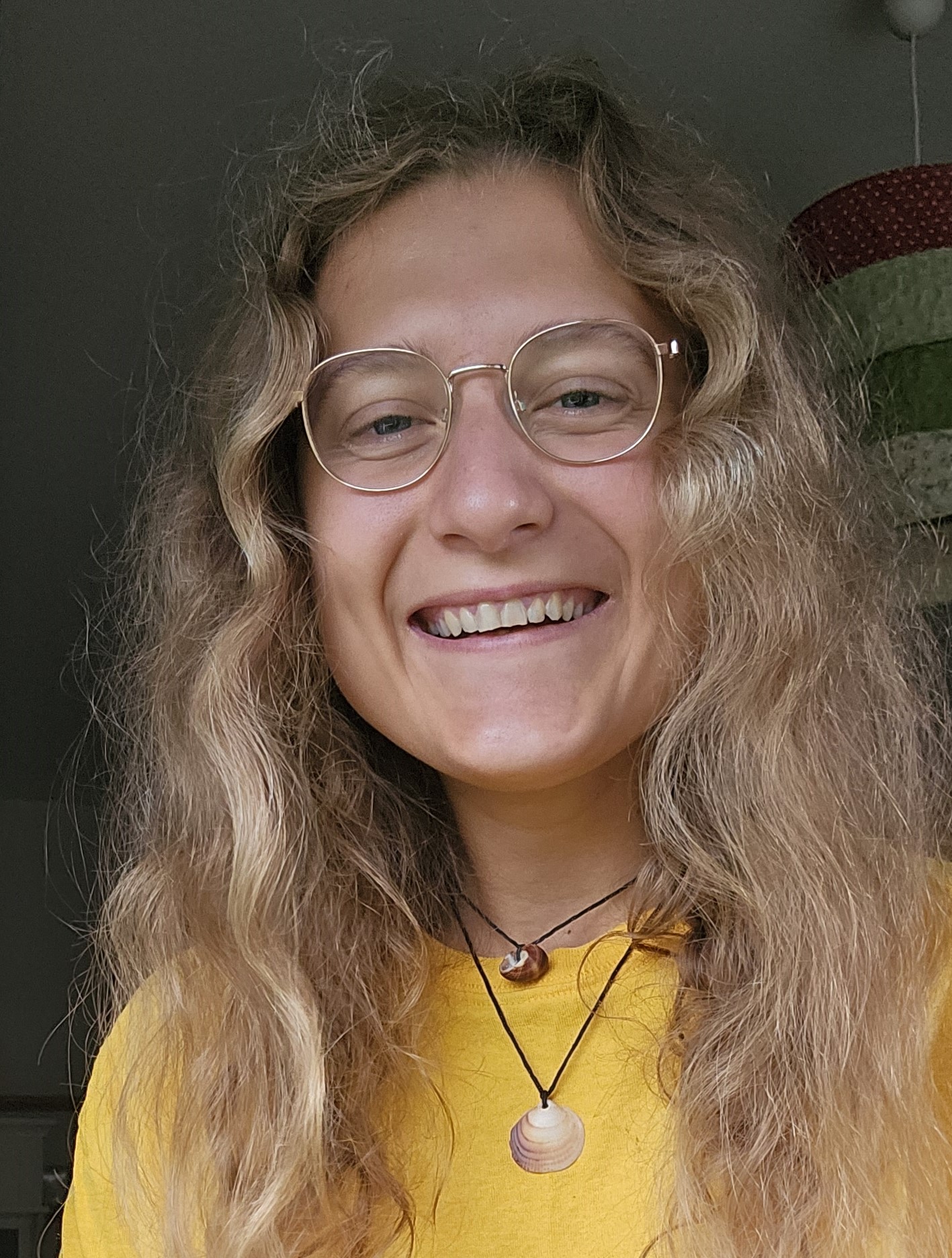Cohort 6
 Madeleine Fabusova
Madeleine Fabusova
- One Planet Researcher, based at Newcastle University School of Natural and Environmental Sciences
- Email: m.fabusova2@newcastle.ac.uk
Project Title:
Mitigating the impacts of artificial light at night on biodiversity
Supervisory Team:
Prof Darren Evans, Newcastle University
Dr Katherine Baldock, Northumbria University
Dr Richard Fox, Butterfly Conservation
Dr Michael Pocock, UKCEH
Collaborators:
A Rocha, Portugal; Island Roads
Bio:
I am a keen naturalist and have spent my whole life admiring the beautiful world around us. During my undergraduate degree, I was introduced to moth-trapping, an accessible ecological survey method for these invertebrates. I’ve not only become hooked on moths ever since, but I started learning about the pressures they face. It quickly became obvious to me, that them, and many (if not all) organisms are affected by environmental light pollution, which is only increasing year on year. I learn how; however, research has the power to implement practical change. Thus, now I focus on researching the ways in which we can mitigate the impacts of light pollution on biodiversity, as a small piece of the puzzle to conserve biodiversity.
Project overview:
Artificial light at night (ALAN) is a prominent form of environmental pollution. It accounts for a multitude of effects on biodiversity, and its effects have been observed through changes to organisms’ physiology, ecology, activity, behaviour and many others. However, the impacts of ALAN on ecosystem networks and interactions of organisms are understudied. Furthermore, with more development, light pollution is only increasing in our environments, and is effects are becoming ever more substantial, accounting for it to be one of the main challenges of the 21st century. There has been a recent switch to LEDs globally, as they are more energy efficient than previous light sources. Despite their marked impacts, the properties of LEDs can be modified. Its possible to change their spectral output, intensity, duration and colour. These modifications can further be combined with other suggested mitigation measures for light pollution, including shading, partial lighting or timed switch off. Therefore, in this PhD, I’ll be combining advances in molecular methods to reconstruct ecosystem networks and improve our understanding of species interaction under ALAN and how these are reflected in plant-animal-pathogen networks. I’ll combine this work with a myriad of ecological surveying methods to test the effects of various mitigating measures for light pollution. I’ll be collaborating with CASE partners, and industrial partners to inform practical change, and find the optimal mitigating measures for light pollution which benefits biodiversity and society alike.
Research Questions:
- How does artificial light at night (ALAN) affect plants, animals, and the wider ecological networks in which they interact?
- How can we improve our understanding of these interactions under ALAN and construct plant-animal-pathogen networks?
- What are the consequences of ALAN on networks and ecosystem function?
- How can we use ecological networks to discriminate the function of communities and the effects of environmental disruptions on ecosystem stability?
- Can the impacts of street and domestic lighting be mitigated via management and/or alternative technology?
- What are the optimal mitigating measures for light pollution which benefit biodiversity?
Education:
MSci in Conservation Biology and Ecology, University of Exeter
Skills:
Moth-trapping, ecological surveying, data analysis in R, fieldwork, bird-handling and ringing
Hobbies:
Birdwatching, moth-trapping, walking/hiking, cycling, bird-ringing, baking








